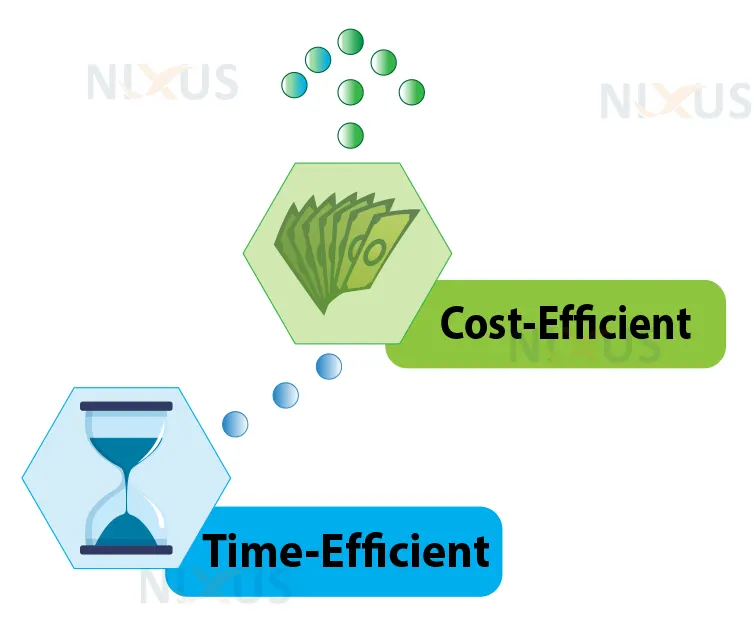Machine Learning in Business
From advertising and marketing to customer service and product development, machine learning may be utilized to streamline business workflows in a variety of contexts. Machine learning enables businesses to quickly derive insights from unstructured data.
The accessibility of practically infinite amounts of data has fueled the development of machine learning in business. A short while later, more powerful and less expensive computing systems and affordable data storage choices were developed.
Due to the widespread adoption of machine learning technologies by businesses across almost every industry vertical, ML has transformed from the science fiction stuff to a cornerstone of contemporary business.
According to experts, machine learning allows businesses to carry out tasks on a level and extent that were impractical before. By facilitating operational adaptability depending on dynamic changes, machine learning is enhancing nearly any process automation and function
Some of the applications of machine learning in business are as follows:
1. Saves Resources and Time
Apps that use machine learning help organizations save money by improving logistics operations and increasing the effectiveness of production.
The most frequent causes of operational efficacy problems for firms include duplicate and inaccurate data issues. Predictive machine learning algorithms can help to minimize effort, eliminate manual mistakes, lower operational costs, and boost overall effectiveness.
Through low-cost forecasts, machine learning can assist business owners and entrepreneurs in fundamentally changing operating paradigms. Applying ML can help firms scale more efficiently in situations where prior sales growth may have been accompanied with variable expenses because more decisions were needed.
2. More Favorable Consumer Results
Websites of software-based businesses can benefit greatly from machine learning. Based on their past purchases, demographic information, and the past purchases of other consumers who have ordered the same item, it can start making suggestions as soon as users arrive on that website. This information can be used to boost sales through email newsletters and social media advertising.
Also, not only may machine learning algorithms be used to anticipate which customers are most likely to leave in the coming future, but many of them can also be used to explain the key causes of customer turnover.
3. Security Enhancement
For businesses all around the world, machine learning helps to increase the scale of business and improve various business related operations.
Cybercrime has grown to be one of the biggest risks as data and technology have increased. As machine learning makes it possible to identify undiscovered dangers, it can be utilized to improve a firm’s security. The main technique for detecting and preventing malware threats is now machine learning.
It’s frequently challenging for systems to effectively predict a danger due to various cyber-attack tactics and danger levels. Meanwhile, as the amount of collected data grows, new approaches are being created to boost the reliability of predictions and boost the capacity of the limited staff of cybersecurity.
Here, machine learning might be helpful to supplement current security teams by offloading part of the surveillance and vulnerability analysis activities to an automation technique.
4. Manual operations elimination
In situations where analysis of the data can be accelerated, machine learning is best suited to assist people in solving complicated problems. The amount of data whizzing across networks is greater than anyplace else, but it is frequently underutilized as a tool to boost customer productivity. There are significant advantages to using ML-based solutions to comprehend how networked devices behave and function.
The largest dispute that businesses are currently facing is data redundancy. If any company uses ML algorithms for their operations, it is merely for data input duties. Because of its unmatched accuracy, it is capable of saving both time and money. The end users and business clients of software-based firms are assisted by machine learning.
5. User satisfaction Enhancement
In the competitive digital age, improving user experience is the top priority. Today’s era demands constant innovation and the finest client experience. Client experience and consumer loyalty can both be increased with the aid of machine learning.
Customer satisfaction can be raised and improved with the aid of machine learning with the help of continuous analysis of client behavior and call recordings. Machine learning can assist the management, spend less money and effort overall on maintaining good customer relations while maintaining more satisfied clients.
6. Task Automation
The majority of business tasks have transformed as a result of the use of ML, with physical operations becoming digital operations and robotics solutions handling financial actions and back-office tasks.
Machine learning may emerge as an essential team member when there is a shortage of IT expertise. With the help of machine learning, you may automate repetitive IT operations like security and surveillance, reporting, data discovery, or classification so that the other team members can concentrate on the more tactical tasks that they always wanted to complete but never had the chance.
7. Facilitates Making Smart Business Decisions
Every organization uses the knowledge it learns from data analysis to help it grow, but getting the correct information out of the data may be challenging. Businesses are making use of machine learning to stay ahead of the game in real time since it enables them to translate existing datasets into useful knowledge and intelligence.
If the data in today’s digital environment makes sense and doesn’t have many other uses, it is a priceless asset for organizations. ML-based technologies can swiftly process and evaluate data to produce solutions to commercial problems. According to the expectations and requirements of the clients, these technologies provide more precise and reliable responses.
8. Detecting Fraud
Machine learning is a useful technique for spotting fraudulent conduct because of its power to comprehend trends and to immediately spot anomalies that deviate from those patterns.
Machine Learning is particularly effective at identifying and stopping fraudulent behavior with credit and debit cards while shopping both offline and online because the technology is capable of self-learning.
Finance-based businesses have already been employing machine learning in this field for years successfully.
Conclusion
Machine learning is an excellent technique for automating complicated activities that goes beyond policy automation. Through the discovery of important insights hidden in business databases, machine learning enables enterprises to increase efficiency and profitability.


